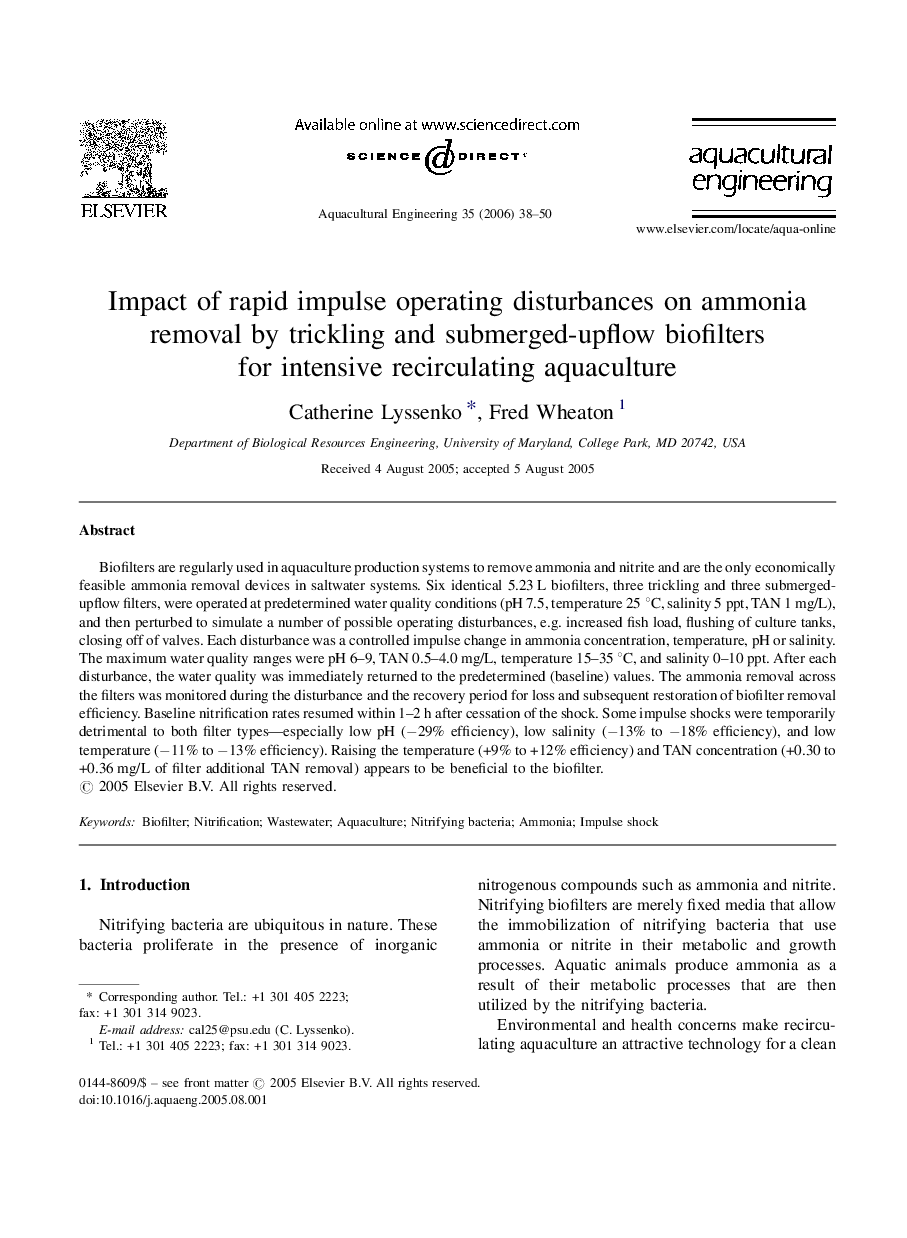| کد مقاله | کد نشریه | سال انتشار | مقاله انگلیسی | نسخه تمام متن |
|---|---|---|---|---|
| 6381636 | 1324115 | 2006 | 13 صفحه PDF | دانلود رایگان |
عنوان انگلیسی مقاله ISI
Impact of rapid impulse operating disturbances on ammonia removal by trickling and submerged-upflow biofilters for intensive recirculating aquaculture
دانلود مقاله + سفارش ترجمه
دانلود مقاله ISI انگلیسی
رایگان برای ایرانیان
کلمات کلیدی
موضوعات مرتبط
علوم زیستی و بیوفناوری
علوم کشاورزی و بیولوژیک
علوم آبزیان
پیش نمایش صفحه اول مقاله

چکیده انگلیسی
Biofilters are regularly used in aquaculture production systems to remove ammonia and nitrite and are the only economically feasible ammonia removal devices in saltwater systems. Six identical 5.23 L biofilters, three trickling and three submerged-upflow filters, were operated at predetermined water quality conditions (pH 7.5, temperature 25 °C, salinity 5 ppt, TAN 1 mg/L), and then perturbed to simulate a number of possible operating disturbances, e.g. increased fish load, flushing of culture tanks, closing off of valves. Each disturbance was a controlled impulse change in ammonia concentration, temperature, pH or salinity. The maximum water quality ranges were pH 6-9, TAN 0.5-4.0 mg/L, temperature 15-35 °C, and salinity 0-10 ppt. After each disturbance, the water quality was immediately returned to the predetermined (baseline) values. The ammonia removal across the filters was monitored during the disturbance and the recovery period for loss and subsequent restoration of biofilter removal efficiency. Baseline nitrification rates resumed within 1-2 h after cessation of the shock. Some impulse shocks were temporarily detrimental to both filter types-especially low pH (â29% efficiency), low salinity (â13% to â18% efficiency), and low temperature (â11% to â13% efficiency). Raising the temperature (+9% to +12% efficiency) and TAN concentration (+0.30 to +0.36 mg/L of filter additional TAN removal) appears to be beneficial to the biofilter.
ناشر
Database: Elsevier - ScienceDirect (ساینس دایرکت)
Journal: Aquacultural Engineering - Volume 35, Issue 1, June 2006, Pages 38-50
Journal: Aquacultural Engineering - Volume 35, Issue 1, June 2006, Pages 38-50
نویسندگان
Catherine Lyssenko, Fred Wheaton,